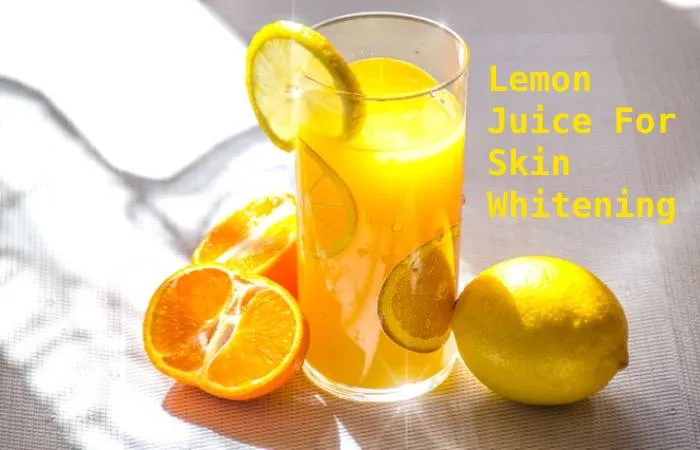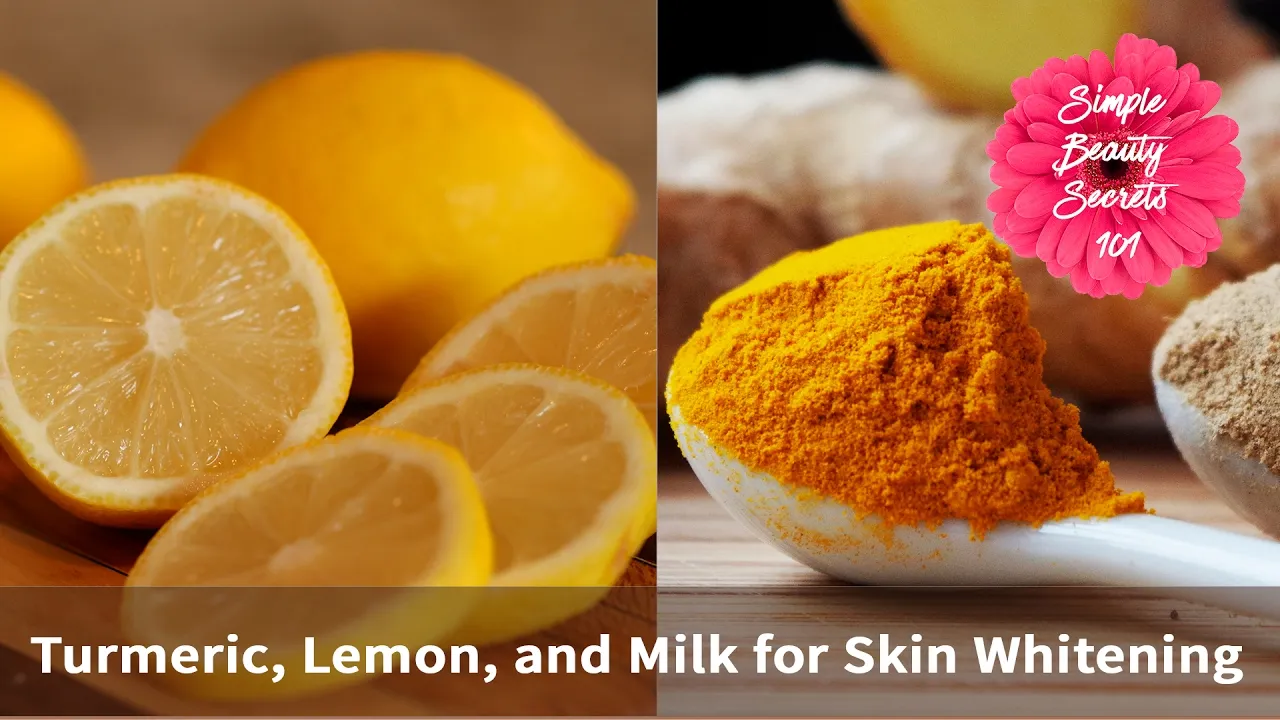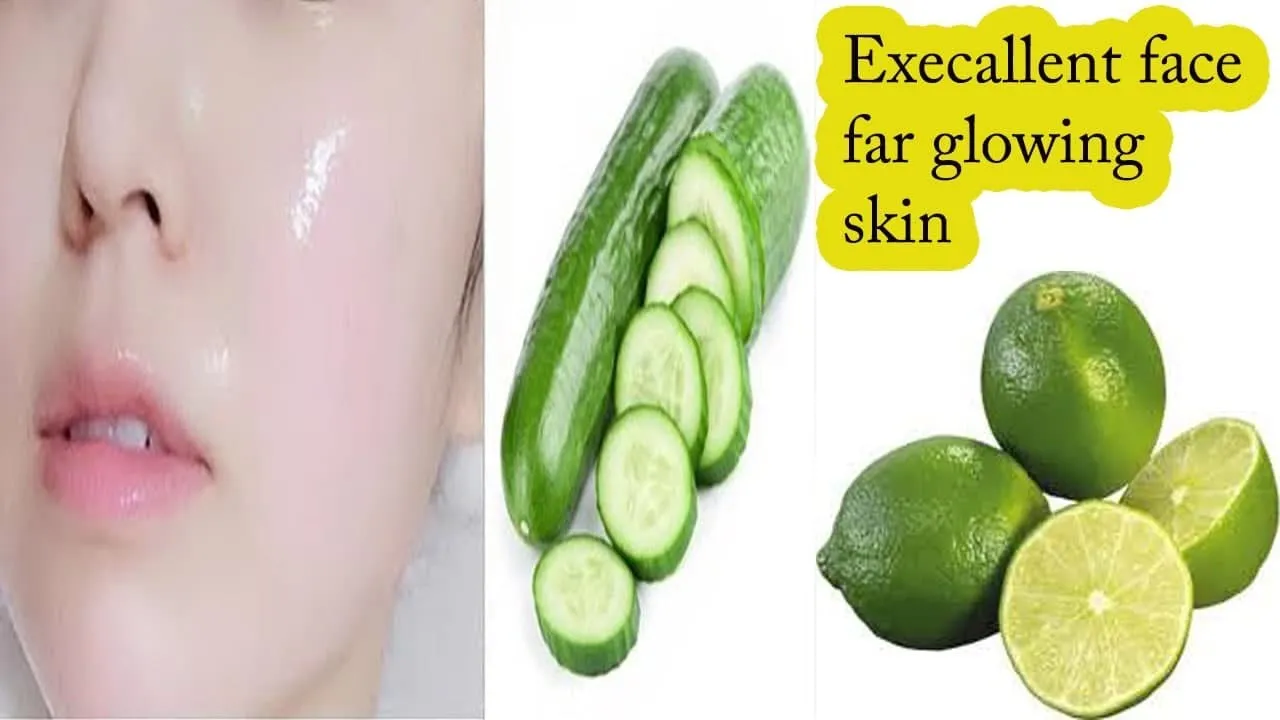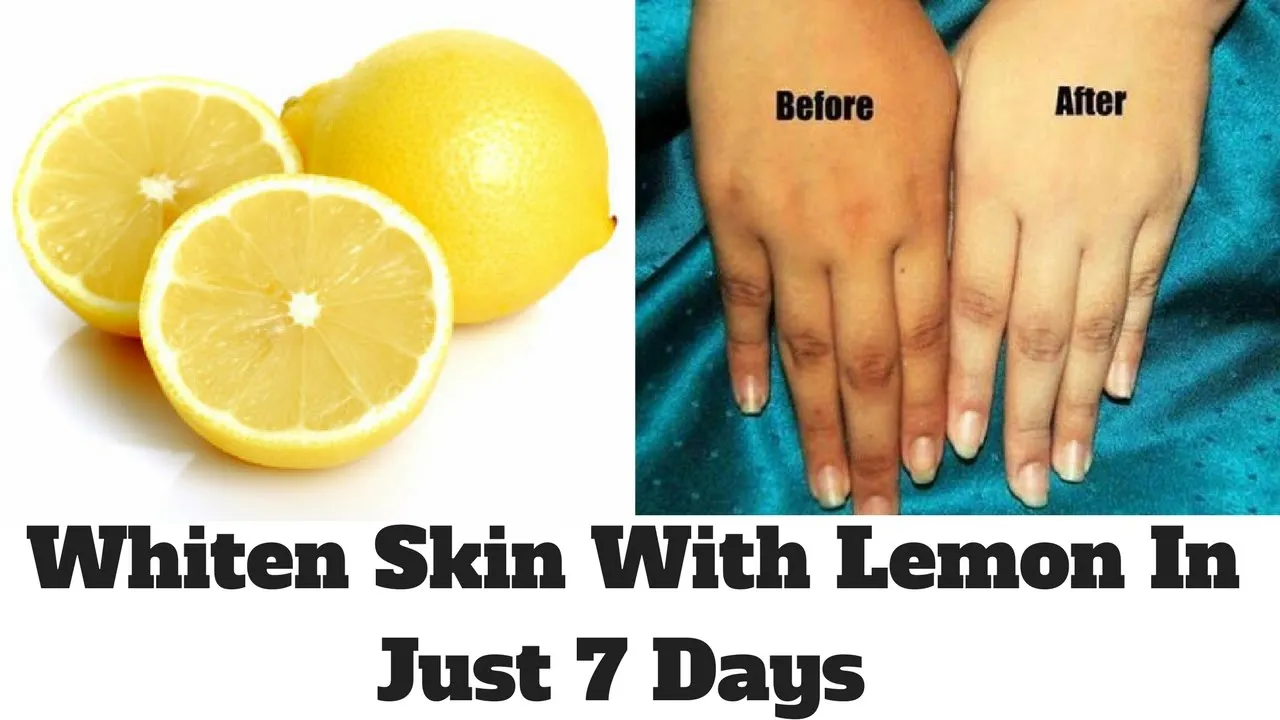What is Skin Whitening
Skin whitening, also known as skin lightening, is a cosmetic process that aims to reduce the melanin pigment in the skin, thereby making the skin appear lighter. This practice is prevalent across the globe, driven by various cultural preferences and cosmetic desires. The motivations behind skin whitening are diverse, ranging from aesthetic ideals to the perceived benefits of a lighter complexion. Many individuals seek to diminish the appearance of dark spots, hyperpigmentation, and uneven skin tone, which can result from sun damage, acne scars, or other skin conditions. The market offers a wide array of products and methods, including creams, lotions, chemical peels, and, as this article explores, natural remedies like lemon juice. Understanding the basics of skin whitening helps to contextualize the specific role and effectiveness of lemon juice in this process, and it is crucial to manage expectations about the results and potential side effects.
How Does Lemon Juice Work for Skin Whitening
Lemon juice has gained popularity as a natural skin whitening agent due to its inherent properties. The effectiveness of lemon juice in skin whitening stems from its composition, primarily its high concentration of citric acid, an alpha-hydroxy acid (AHA). AHAs are known for their exfoliating capabilities, which help remove dead skin cells and promote the regeneration of new skin cells. This process can lead to a brighter and more even skin tone over time. Additionally, lemon juice contains Vitamin C, a potent antioxidant that inhibits melanin production, the pigment responsible for skin color. It is important to note that while lemon juice can offer these benefits, the results are not as dramatic or immediate as those achieved through medical-grade treatments. Furthermore, the effectiveness varies depending on individual skin types, the concentration of the lemon juice used, and the frequency of application. Prudent use of lemon juice requires diligence in following recommended practices to avoid adverse reactions.
Fact 1 Lemon Juice and Vitamin C

Vitamin C is a crucial component in the skin whitening process when using lemon juice. This powerful antioxidant plays a key role in inhibiting tyrosinase, an enzyme that catalyzes melanin production. By interfering with melanin synthesis, Vitamin C helps to reduce the appearance of dark spots and uneven skin tone, contributing to a lighter complexion. The presence of Vitamin C in lemon juice is one of the primary reasons for its popularity as a skin whitening agent. The antioxidant properties of Vitamin C not only lighten the skin but also protect it from free radical damage caused by environmental factors like UV radiation and pollution. The ongoing protection supports the overall health and vitality of the skin, which is crucial for achieving and maintaining a brighter skin tone. Regular use of lemon juice, along with other skincare practices, can enhance the benefits of Vitamin C and contribute to effective skin whitening.
Benefits of Vitamin C for Skin
The benefits of Vitamin C for the skin are extensive, extending far beyond its skin whitening capabilities. It is a potent antioxidant that neutralizes free radicals, preventing premature aging and reducing the appearance of fine lines and wrinkles. Vitamin C also stimulates collagen production, which improves skin elasticity and firmness, leading to a more youthful appearance. Furthermore, it aids in wound healing and reduces inflammation, making it a beneficial ingredient for those with acne or other skin conditions. Regular use of Vitamin C, whether from lemon juice or other sources, can result in brighter, smoother, and more resilient skin. The ingredient’s ability to protect against environmental damage makes it a valuable addition to any skincare routine, promoting a healthier, more radiant complexion. Incorporating Vitamin C into your skincare regimen can greatly improve your skin’s overall health.
Fact 2 Lemon Juice and Exfoliation
Lemon juice acts as a natural exfoliant due to its citric acid content. Exfoliation is a crucial step in skin whitening because it removes dead skin cells from the surface, revealing brighter and fresher skin underneath. This process helps to even out skin tone, reduce the appearance of dark spots, and improve the absorption of other skincare products. The exfoliating properties of lemon juice can also unclog pores and prevent breakouts, contributing to clearer skin. While lemon juice offers these benefits, it’s essential to use it cautiously, as over-exfoliation can lead to irritation and sensitivity. Regular but moderate use of lemon juice, combined with moisturizing and sun protection, can help achieve the desired skin whitening results while maintaining skin health. The exfoliation action prepares the skin to better absorb other beneficial components.
How Exfoliation Works

Exfoliation works by removing the outermost layer of dead skin cells, which can make the skin appear dull, uneven, and congested. This process stimulates cell turnover, encouraging the growth of new, healthy skin cells. There are two main types of exfoliation: physical and chemical. Physical exfoliation involves using abrasive materials, such as scrubs or brushes, to manually remove dead skin cells. Chemical exfoliation, on the other hand, uses chemical substances, like AHAs (such as citric acid in lemon juice) and BHAs, to dissolve the bonds that hold dead skin cells together. Both types of exfoliation can improve skin texture, reduce the appearance of fine lines, and unclog pores. However, it is important to choose the method that best suits your skin type and to avoid over-exfoliating, which can lead to irritation and inflammation.
Fact 3 Lemon Juice and Dark Spots
Lemon juice is often used to treat dark spots and hyperpigmentation due to its skin-lightening properties. The citric acid in lemon juice helps to break down melanin, the pigment responsible for dark spots, thereby reducing their appearance over time. The Vitamin C in lemon juice also inhibits melanin production, preventing new dark spots from forming. Consistent use of lemon juice can lead to a noticeable reduction in the visibility of dark spots caused by sun damage, acne scars, or other factors. It is, however, important to remember that the effectiveness of lemon juice varies depending on the severity and type of dark spots, and that results are gradual. It is also essential to combine lemon juice treatment with other skincare practices, such as sun protection, to prevent further pigmentation and maximize the benefits. The reduction of dark spots contributes significantly to a more even skin tone.
Causes of Dark Spots
Dark spots, also known as hyperpigmentation, can result from various factors, including sun exposure, hormonal changes, acne scars, and aging. Sun exposure is one of the primary causes, as UV radiation stimulates melanin production, leading to the formation of sunspots. Hormonal fluctuations, such as those during pregnancy or menopause, can trigger melasma, a condition characterized by dark patches on the face. Acne scars can also leave behind dark spots due to inflammation and the skin’s healing process. Aging can also contribute to the development of age spots, which are often found on the face, hands, and other areas exposed to the sun. Understanding the causes of dark spots can help in choosing the appropriate treatment and preventative measures, such as using sunscreen regularly and protecting the skin from excessive sun exposure.
Fact 4 Lemon Juice and Natural Bleaching

Lemon juice acts as a natural bleaching agent due to its acidic properties, particularly the citric acid it contains. This acid helps to lighten the skin by reducing melanin concentration, the pigment responsible for skin color. The bleaching action of lemon juice is gentle and, with consistent use, can gradually lighten the skin, reduce dark spots, and even out skin tone. It is important to remember that natural bleaching with lemon juice is a slower process than chemical treatments. The effectiveness and results also depend on the frequency of application and individual skin characteristics. Because lemon juice is a natural ingredient, it’s typically less harsh than commercial bleaching products, making it a popular choice for those looking for gentler skin whitening options. However, it is crucial to use lemon juice cautiously, avoiding overexposure to prevent skin irritation and sun sensitivity.
How Natural Bleaching Works
Natural bleaching, as achieved with lemon juice, works by utilizing the chemical properties of natural ingredients to lighten skin tone. The citric acid in lemon juice acts as a mild bleaching agent, breaking down the melanin that gives skin its color. This process is gradual, with results becoming visible over time with regular use. Natural bleaching is often considered a safer alternative to more aggressive chemical treatments, as it is generally less likely to cause irritation or side effects. However, it is important to use natural bleaching agents cautiously and to perform a patch test before widespread application. Additionally, natural bleaching requires consistent use and patience, as the results are often subtle and take time to manifest. Pairing natural bleaching with other skin-care practices, like exfoliation and sun protection, can improve the results and overall health of your skin.
Fact 5 Lemon Juice and Skin Tone
Lemon juice can impact skin tone, primarily by reducing melanin production and promoting a more even complexion. With its skin-lightening properties, lemon juice can gradually lighten the skin and reduce the appearance of uneven skin tone, such as areas of hyperpigmentation. It can also improve skin texture by exfoliating dead skin cells, which helps to create a brighter and more radiant appearance. The effectiveness of lemon juice on skin tone varies depending on individual skin type, the severity of any skin issues, and the consistency of the treatment. Regular application, combined with sun protection and other skincare practices, can lead to visible improvements in skin tone over time. It is important to be realistic about the results and to approach lemon juice treatments with patience and care, as significant changes in skin tone are often gradual.
How Lemon Juice Affects Skin Tone

Lemon juice affects skin tone through a combination of its exfoliating and melanin-inhibiting properties. The citric acid in lemon juice exfoliates dead skin cells, which reveals fresher, brighter skin underneath, contributing to a more even tone. The Vitamin C in lemon juice inhibits tyrosinase, the enzyme responsible for melanin production, which helps to reduce the appearance of dark spots and overall skin discoloration. By reducing melanin and promoting cell turnover, lemon juice gradually lightens the skin and improves its overall appearance. However, the impact of lemon juice on skin tone varies depending on several factors, including the concentration of the juice, the frequency of application, and the individual’s skin type. It is essential to use lemon juice cautiously and to always protect the skin from sun exposure to maximize its benefits and minimize potential side effects.
Risks and Precautions of Using Lemon Juice
While lemon juice has benefits for skin whitening, it is important to be aware of potential risks and take necessary precautions. One of the main risks is skin irritation, as the high acidity of lemon juice can cause redness, stinging, and peeling, especially for sensitive skin. Sun sensitivity is another significant concern, as lemon juice makes the skin more susceptible to sun damage. Applying lemon juice and then exposing the skin to sunlight can lead to sunburns and further hyperpigmentation. It is crucial to perform a patch test before applying lemon juice to a larger area of the skin to check for any adverse reactions. Always use sunscreen with a high SPF when using lemon juice, and limit sun exposure. If you experience any irritation, discontinue use immediately. Diluting the lemon juice with water can help reduce the risk of irritation.
Side Effects of Lemon Juice on Skin
Using lemon juice on the skin can lead to several side effects if not used properly. The most common side effects include skin irritation, such as redness, itching, and burning sensations. Some individuals may experience dryness and peeling, particularly with frequent use or on sensitive skin. Increased sun sensitivity is another significant concern; the skin becomes more vulnerable to sun damage and sunburns. In rare cases, lemon juice can cause phytophotodermatitis, a condition characterized by dark, blotchy patches on the skin, caused by the interaction of the chemicals in lemon juice with sunlight. To minimize these side effects, it is crucial to dilute the lemon juice, perform a patch test, and use sunscreen regularly. Discontinue use if you experience severe irritation and consult with a dermatologist if side effects persist or worsen. The key is moderation and caution.
Proper Usage and Application Methods

Proper usage and application methods are crucial for maximizing the benefits of lemon juice while minimizing potential risks. Start by diluting the lemon juice with an equal amount of water to reduce acidity and minimize irritation. Always perform a patch test on a small area of skin, such as the inner arm, before applying to the entire face or body. Apply the diluted lemon juice to clean, dry skin using a cotton ball or pad. Allow the juice to sit on the skin for a short period, typically 5-15 minutes, depending on your skin’s sensitivity. Rinse thoroughly with cool water and pat the skin dry. Follow up with a moisturizer to hydrate and soothe the skin. Apply sunscreen with a high SPF every day, even on cloudy days, to protect the skin from sun damage. Limit the frequency of application to once or twice a week to avoid over-exfoliation and irritation.
